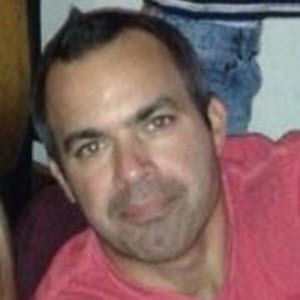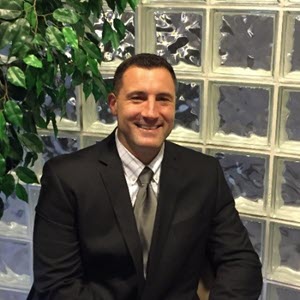Aftermarket Shouldn't Be An Afterthought
Jul 09, 2024
The Importance of the OEM-Customer Relationship
Before you purchase a piece of equipment for your production line, you do your research. You consider your project and objectives, you review different manufacturers, and you may even talk to industry peers about their experiences. In other words, you put a lot of time into selecting the right equipment and supplier to help you achieve your goals. It stands to reason, then, that you want to take the same care in deciding whether to use the original equipment manufacturer (OEM) for service and parts, or whether you elect to go with a third-party provider.
At Pneumatic Scale Angelus, we believe that no matter what equipment you have, it’s in your best interest to rely on the OEM’s expertise and the integrity of parts designed specifically for your machine to meet your aftermarket needs. Third-party providers often make what may initially seem like good arguments to choose their product, but it’s important to understand what trade-offs you might be making when you choose that path. We sat down with two of our aftermarket experts to dig in a little deeper and hear what they had to say on the subject.
Q. Isn’t one replacement part like another? Why bother with OEM parts?
A. Replacement parts are as unique as the machine that was designed and built to achieve your specific goals. As Matt Spiegel, Vice President of Customer Service explains, “We have the history and knowledge and technical ability to support all the equipment we design and manufacture. The ability to look up old prints for reference…. All design upgrades and improvements are meticulously documented to make sure you get the latest version of a part — the one intended for your specific piece of equipment. A third-party provider will not have that history or know why something was designed the way it was, or why one material was chosen over another, to make sure parts and machines interact correctly. [Our customers] take comfort in knowing parts are designed and made correctly.” In the end, third-party suppliers must rely on reverse engineering the design versus following the latest design specification for a given part. As a result, you can never be certain the version they modeled your part after is the most current, with all of its respective updates and enhancements.
Jet Hajec, our Vice President of Seamer Sales adds another important point. “There’s a guarantee and warrantee that the OEM stands behind that a third-party or aftermarket rebuilder doesn’t provide. And we make it easy to get replacements quickly – simply provide the model and serial number of your machine and the part number you need, and we can usually ship it the same day.”
Q. Is all of your equipment designed and built to meet individual project goals?
A. Yes, with the exception of our industry-leading Angelus seamers, all of our machines are designed to the unique specifications of each customer’s application. “Working with an OEM, you are getting the solution and parts designed to work with your specific machine,” says Matt. “The measurements, fit and materials will be identical to, or an upgrade of, the originals. Which means the precision, speed and efficiency of your production line will be like new.”
Compare this with what you get with many third-party components. They simply don’t have the hand-in-glove fit that the OEM piece will have because they aren’t manufactured using the original designs. And third-party replacement parts can be noticeably thinner than the originals. Thinner parts may cost less initially, but they won’t last as long and are likely to warp or snap, meaning you’ll spend more money to replace them more often. You won’t get the same reliability or longevity out of them as an OEM part, and your overall performance is likely to suffer.
Q. What do your repairmen do that others don’t?
A. First, we don’t use repairmen, we send fully trained Field Service Technicians to work on our equipment. They may be Certified Technicians, Technical Specialists or Technical Masters, or a combination of the three, depending on the complexity of the work required.
A third-party repairman’s goal is to quickly install a replacement part, get the machine running, and get back to the shop. As an OEM Service Technician, our experts not only get your equipment running again, but they’ll ensure it is tuned specifically to restore it to its original operational specifications. They’ll look at the overall performance of the machine, noting anything that might keep it from achieving your production goals. Our experts can also identify preventive measures or upcoming maintenance that can be completed during the repair that will enable you to avoid downtime and additional expense later. That’s part of our OEM commitment to service.
Q. What if my equipment isn’t one of your brands? Will you still provide parts and service?
A. Absolutely! You don’t have to own our equipment to be part of the PSA family! Zepf Solutions is our industry-leading change parts and storage solutions provider. They provide tool-free change parts for fast changeovers, regardless of machine brand. Their storage solutions improve efficiency and decrease downtime and waste.
In order to protect your warranty on another OEM’s machine, we won’t repair equipment that isn’t ours, but many customers do elect to try our aftermarket services before investing in our equipment. “There is less risk for the customer on aftermarket,” says Jet. “This is our time to demonstrate how we handle small projects – a mechanical or electrical upgrade, for example – with a sense of urgency. To showcase our ability to support your essential equipment in the field. We pride ourselves on building a relationship with our customers, so that, ultimately, they say ‘Yes, we trust PSA, their equipment and their team.’ You start small and build on that foundation.”
Q. Are there benefits to using my OEM for aftermarket products and service?
A. Yes. In addition to having a company that stands behind its work, the things that are important to PSA as an OEM are just as important when we are providing parts and service. “Safety is important,” Jet says. “It’s rare that you hear that a third-party provider has Category 3 safety features — or that it’s engineered for redundancy of wiring or machine-mounted safety features. This is an OSHA requirement. We will not let a machine out of one of our manufacturing facilities unless it’s properly guarded. Being the OEM, you’re held to a certain level. An expectation. And you don’t walk away from that responsibility. We’re heavily invested in the product we’ve designed and innovated. A third-party provider just doesn’t have that same level of investment.”
Another key advantage with an OEM is that we will repair your equipment, regardless of its age. Matt says, “I recently quoted a part for a machine built in 1917! It’s fairly common that we see parts from 60 to 70 years ago. Our Service Techs know how to work on all makes and models, and it’s the same for Customer Service and Sales. We support machines from over a century ago. We think that’s pretty unique in this industry.”
When PSA is your OEM, letting us serve your aftermarket needs further enhances the long-term relationship we strive to build with you. Jet explains, “The end goal is to be a trusted advisor – a true partner in your success. It’s not always about selling, but about being a valuable source of expertise, capable of offering the best solution. Some companies teach against building relationships. It’s not that way with our team. From the Sales Exec, to the Field Service Technician, to the Customer Service Rep, we try to provide as many touch points as possible. We also have the backing of Barry-Wehmiller and the network of our sister companies who can provide solutions, too.”
Matt seconds this approach. “Number one is building the relationship. Making sure customers have appropriate names and numbers they can call for help, making sure we’re responsive. It can be customer service, field service, outside sales… the relationship is what drives our business. Provide quality solutions in a timely manner. Be keenly aware of the customer’s requirements. Make sure the correct questions are asked, and that timely follow-up happens.”
Jet went on to explain that he — and the entire PSA team — believes firmly in the principles outlined in the Top Gun sales training program about the importance of serving your customer, which he summarizes this way: “The attitude of servitude—be a servant to your clients. Strength comes from service. Loyalty comes from service. We never forget that each customer is running production. When production stops, there is nothing more important than accessibility and urgency.”
For more information on the benefits of our Aftermarket capabilities, visit https://www.psangelus.com/services. We’re happy to be of Service.
About the Experts

Jet Hajec, Vice President of Seamer Sales, has been with Pneumatic Scale Angelus for his entire 25-year career. He started in Customer Service, where he worked for two years before taking over an Outside Sales territory. In 2008, he was promoted to a leadership role in Aftermarket Sales, where he worked on the full range of PSA products, from fillers, cappers, and seamers to Zepf change parts and storage carts. He moved to his current position as Director of Seamer Sales in 2023.

Matt Spiegel, Vice President of Customer Service, has been with Pneumatic Scale Angelus for 22 years. He started in Customer Service, where he helped acquire the Mateer-Burt product lines, integrating them into the business and serving as the primary contact. Matt then moved to Outside Sales for Aftermarket for 10 years. He was asked to rejoin Customer Service as the head of the Akron and California teams, which encompass the largest part of PSA’s aftermarket business. After 8 years, Matt was promoted to his current position, where he is responsible for Customer Service, globally.